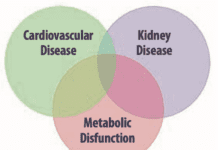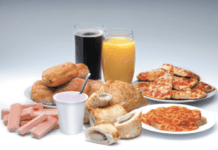Home Search
Cancer - search results
If you're not happy with the results, please do another search
Regular Workouts Reduce Uterus Cancer Risk by 30%
H eres more motivation to get going on a program of regular physical activity: A new National Cancer Institute re- view of 14 prior studies reports that women who regularly exercise reduced their risk of endometrial cancer by about 30%. On the other hand, women who spend more of their day sitting were at greater risk of the can- cer, which affects the lining of the uterus.
Coffee May Combat Aggressive Cancers
Heres news that might settle the nerves of heavy coffee drinkers: Two new studies suggest that high coffee consumption might be linked to reduced risks of the most aggressive form of breast cancer in women and lethal prostate cancer in men
Exercise and Diet Changes May Reduce Breast Cancer Risk
Two new studies suggest ways that lifestyle changes can help postmenopausal women reduce their risk of breast cancer.
Vitamin D Linked to Lower Colorectal Cancer Risk
The largest study of its kind to date may tip the scales on the controversial question of whether higher vitamin D levels are associated with reduced risk for colorectal cancer. Researchers drawing on data on more than a half-million participants in the European Prospec - tive Investigation into Cancer (EPIC) study concluded that people with the highest blood levels of vitamin D were up to 40% less likely to develop colo - rectal cancer compared to those with the lowest levels.
No Link Between Folic Acid Supplements and Colorectal Cancer
A new American Cancer Society study concludes that theres no evidence folic acid from fortified foods or supplements increases the risk of colorectal cancer. Earlier research, including a 2007 Tufts study
No Link Between Folic Acid Supplements and Colorectal Cancer
A new American Cancer Society study concludes that theres no evidence folic acid from fortified foods or supplements increases the risk of colorectal cancer. Earlier research, including a 2007 Tufts study
Diet and Cancer Research Roundup
Antioxidant-Rich Foods May Cut Risk of Pancreatic Cancer Foods rich in antioxidant vitamins C and E and selenium may help reduce the risk
Lung Cancer Odds Lower with Higher Vitamin B6
Higher levels of vitamin B6 and a common amino acid called methionine may reduce your risk of lung cancer, the worlds most common cause of cancer death- whether or not youve ever smoked. A study involving nearly 400,000 participants in the European Prospective Investigation into Cancer and Nutrition (EPIC) reports that higher blood levels of vitamin B6 and methionine, found in most proteins as well as nuts and seeds, were associated with reduced rates of lung cancer regardless of smoking status.
Processed Meats Associated with Pancreatic Cancer
Eating processed meats such as bacon, sausage and ham appears to increase your relative risk of pancreatic cancer, as does red meat of
European Study Finds No Extra Bladder-Cancer Risk for Meat Eaters
In a rare bit of good news for red-meat lovers, a study of nearly a half-million people from 10 European countries has found no link between eating red or processed meat and risk of bladder cancer


























